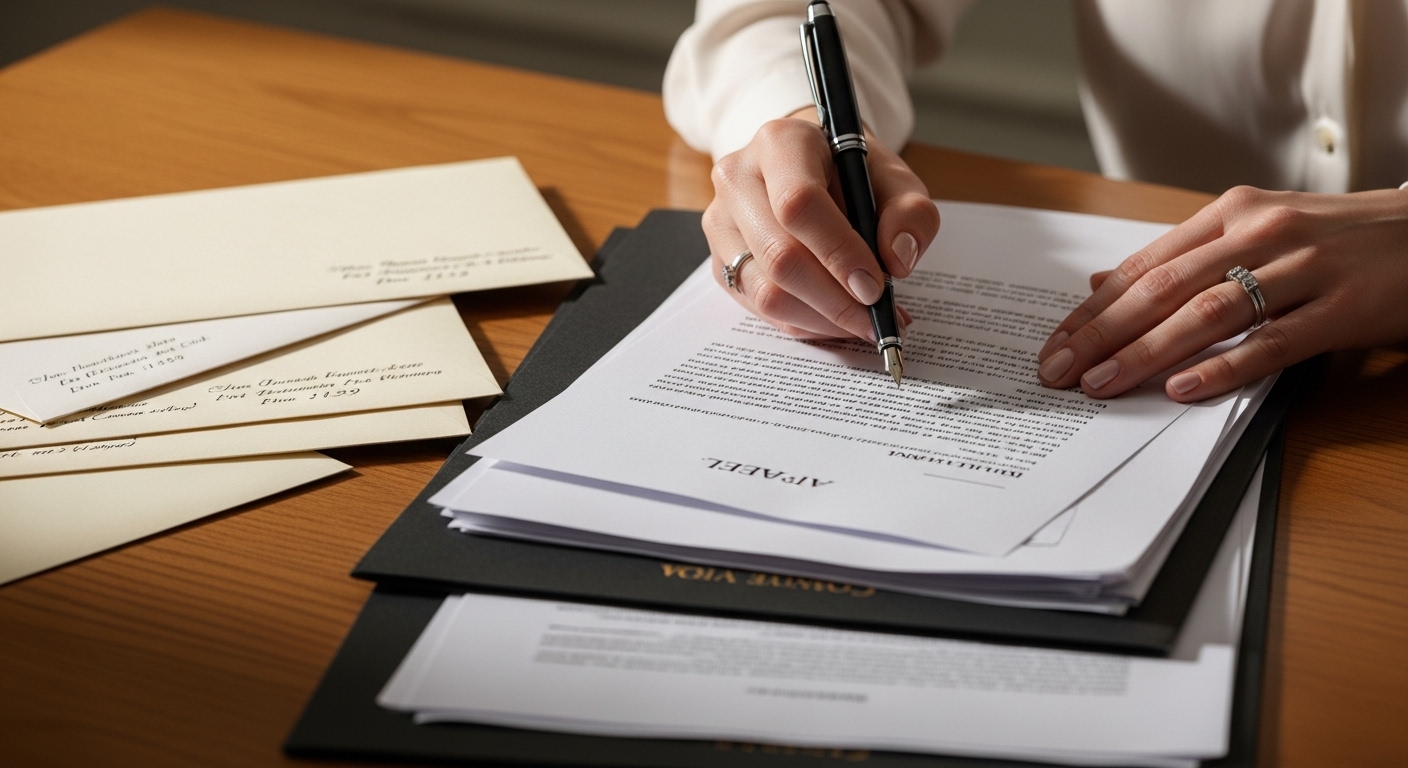How to Dispute a Fare Evasion Fine

How to Dispute a Fare Evasion Fine
Received a penalty fare from Transport for London and believe it’s unfair? You have the right to challenge it—but time is critical. Understanding the appeals process and acting quickly can mean the difference between having the penalty cancelled and facing escalating fines or even prosecution. This comprehensive guide explains exactly how to dispute a fare evasion fine in 2025, what evidence you’ll need, and how to maximise your chances of success.
TIME-SENSITIVE: You typically have just 21 days from the date of travel to submit your appeal. Missing this deadline can result in your appeal being rejected automatically.
Act Fast: Understanding the 21-Day Deadline

The single most important thing to know about disputing a fare evasion fine is that appeals must be made in writing within the timeframe specified on your penalty fare notice—in most cases, this is 21 days from the date of travel, not the date you received the notice.
Appeals submitted after the deadline are rejected unless you can provide strong evidence explaining why the deadline was missed. Valid reasons might include serious illness, being abroad, or not receiving the notice due to postal issues—but you’ll need solid proof.
The clock is ticking from the moment you receive your penalty fare notice, so don’t delay. Even if you’re unsure about your grounds for appeal, it’s better to submit something within the deadline than to miss it while gathering perfect documentation.
The Three-Stage Appeal Process
The TfL appeal process typically has up to three stages, giving you multiple opportunities to challenge an unfair penalty:
1Initial Appeal: Your first appeal goes directly to TfL or their designated penalty fare service. This is where most successful appeals are resolved. TfL will review your case, examine your evidence, and make a decision.
2Subsequent Appeal: If your initial appeal is rejected and you still believe the penalty is unjust, you can submit a subsequent appeal. This gives you another chance to present your case, perhaps with additional evidence or clarification of your circumstances.
3Independent Review: If your subsequent appeal also fails and you remain unsatisfied, you may be able to request an independent review. London TravelWatch provides guidance on accessing independent review processes for penalty fares.
Each stage requires a written submission, and decisions typically take several weeks. The good news is that while your appeal is pending and if you appealed within the deadline, the penalty fare is usually not increased.
Valid Reasons for Appealing

Not every appeal will succeed—TfL receives thousands of appeals and only upholds those with genuine merit. Common valid reasons for appeal include situations where you genuinely couldn’t purchase or validate a ticket through no fault of your own.
Faulty or Unavailable Ticket Machines: If ticket machines at your starting station were broken, displaying “out of order” messages, or not accepting payment, this is a strong ground for appeal. You’ll need evidence—photos of the broken machines with visible timestamps are ideal, or statements from other passengers who witnessed the problem.
Barrier Failures: Malfunctioning barriers that prevented you from tapping in or out properly can justify an appeal. Again, photographic evidence helps, as does immediately reporting the issue to station staff.
Inadequate Opportunity to Purchase: If you arrived at a station with no ticket office, no working machines, and no other way to buy a ticket, you may have grounds for appeal—especially if this was outside normal operating hours.
Genuine Mistakes: Perhaps you accidentally tapped the wrong card, or you thought your Oyster card had sufficient balance, but it didn’t. While these are mistakes, if you can demonstrate it was truly accidental and you have a history of paying correctly, TfL may show leniency, especially for first-time offenders.
Staff Error: If station staff gave you incorrect information about fares or told you it was acceptable to board without a ticket, this is valid grounds for appeal. Try to note the staff member’s name or badge number if possible.
Medical Emergencies: If you boarded in a medical emergency and couldn’t stop to purchase a ticket, this is a legitimate reason—but you’ll need supporting evidence such as hospital records or ambulance reports.
Technical Issues with Contactless or Oyster: System glitches that prevented your card from being read properly, or where you tapped in but the system didn’t register it, are valid reasons. Your TfL journey history can help prove this.
What won’t work: Simply saying you “forgot” to tap in or out, claiming you “didn’t know” you needed a ticket, or arguing that the fine is too expensive. TfL expects passengers to know and follow the rules.
Gathering Your Evidence
A successful appeal depends heavily on the quality of your evidence. You should provide full details, reference numbers, and any supporting evidence that backs up your claim. The more comprehensive your submission, the better your chances.
Essential Information:
- The penalty fare reference number from your notice
- Date, time, and location of travel
- The specific route you travelled
- Your Oyster card or contactless card number (if applicable)
- A clear explanation of what happened and why you couldn’t purchase a valid ticket
Supporting Documentation:
- Photographs: Pictures of broken ticket machines, malfunctioning barriers, “out of order” signs, or anything else relevant to your case. Make sure photos are clearly timestamped.
- Receipts: If you attempted to purchase a ticket elsewhere or shortly after the incident, keep receipts as evidence of intent to pay.
- Bank Statements: These can show attempted card payments that failed, or prove you had insufficient funds loaded onto your Oyster card despite believing you did.
- Journey History: Download your TfL journey history to demonstrate regular payment patterns or to show technical issues with tap-ins or tap-outs.
- Medical Records: For medical emergency claims, hospital admission records or GP letters confirming your condition at the time.
- Witness Statements: If other passengers can corroborate your story (e.g., that machines were broken), their statements can strengthen your appeal.
- Communication Records: If you reported the issue to TfL customer service or station staff at the time, reference numbers or confirmation emails are valuable evidence.
Pro Tip: Always take photos immediately if you encounter problems with ticket machines or barriers. Even if you don’t receive a penalty fare, having evidence “just in case” can prove invaluable later.
How to Submit Your Appeal

You have two options for submitting your appeal to TfL, both of which are explained in detail on TfL’s penalty fare appeals page.
Online Submission: The quickest and most convenient method is through the TfL Appeals Service online portal. This allows you to upload supporting documents and photographs directly, track your appeal’s progress, and receive faster responses. You’ll need your penalty fare reference number to begin the online appeal process.
Postal Submission: Alternatively, you can submit your appeal by post. Write a formal letter explaining your case, include all supporting evidence, and send it to the address specified on your penalty fare notice. Make sure to send it by recorded delivery so you have proof it was received, and keep copies of everything you send.
Whichever method you choose, your appeal should be clear, factual, and professional. Stick to the relevant facts, avoid emotional language or accusations, and let the evidence speak for itself. A well-structured, respectful appeal is more likely to be taken seriously.
What to Include in Your Appeal Letter
Whether submitting online or by post, your appeal should contain:
Your Details: Full name, address, contact number, and email address.
Penalty Reference: The unique reference number from your penalty fare notice.
Travel Details: Date, approximate time, starting station, destination, and the service you used (Underground, Overground, bus, etc.).
Your Account of Events: A clear, chronological explanation of what happened. Be specific about the times, locations, and actions you took.
Why the Penalty Is Unjust: Explain clearly why you believe the penalty fare shouldn’t apply in your case. Reference any specific circumstances or failures in the system.
Evidence References: List all documents and photos you’re including, and explain what each piece of evidence demonstrates.
Your Request: State clearly that you’re appealing the penalty fare and requesting it be cancelled.
What Happens During Your Appeal

Once submitted, TfL will review your appeal. Processing times vary but typically take between two to four weeks for initial appeals. During this time:
You don’t need to pay the penalty fare if you’ve appealed within the deadline. While your appeal is pending, the fine usually won’t be increased, giving you breathing room to resolve the matter.
TfL may contact you for additional information or clarification. Respond promptly to any requests—delays in providing information can slow down your appeal or count against you.
You can check your appeal status through the online portal if you submitted electronically, or by contacting the appeals team with your reference number if you sent a postal appeal.
If Your Appeal Is Successful
Good news! If your appeal is successful, any penalties paid are refunded, usually in full. You’ll receive written confirmation of the outcome, and if you’d already paid the penalty fare, a refund will be processed back to your original payment method within a few weeks.
A successful appeal means the penalty is completely cancelled—it won’t appear on any records, and there are no further obligations. You’re free to continue using TfL services without any black marks on your travel history.
If Your Appeal Fails

If TfL rejects your initial appeal, don’t panic. You’ll receive instructions about payment and the option to escalate to the next appeal stage if you still believe the decision is wrong.
Read the rejection letter carefully—it should explain why your appeal wasn’t upheld. Sometimes the issue is insufficient evidence rather than the merit of your case. If you can obtain additional supporting documentation, submit it with your subsequent appeal.
You can proceed to the second stage of appeal if you disagree with the decision. This gives you another opportunity to present your case, perhaps with different emphasis or additional evidence. If the second appeal also fails, you may have the option for an independent review through London TravelWatch.
At some point, you need to realistically assess whether continued appeals are worthwhile. If TfL has clearly explained why your case doesn’t meet the criteria for cancellation, and you don’t have strong new evidence, it may be better to pay the penalty and move on rather than risk escalation to prosecution.
The Risks of Ignoring Your Penalty Fare
Whatever you do, don’t ignore the penalty fare notice. Ignoring the notice or missing the deadline can escalate to higher fines or prosecution, with risks of a criminal record and substantial additional costs.
If you don’t appeal within 21 days and don’t pay, TfL can:
- Increase the penalty fare amount with administration charges
- Pass the debt to collection agencies
- Cancel the penalty fare and prosecute you for fare evasion instead
- Pursue you for a criminal conviction with fines up to £1,000
Even if you don’t think your appeal will succeed, submitting it at least shows you’re engaging with the process. This is infinitely better than ignoring the issue and hoping it disappears—which it definitely won’t.
When to Seek Legal Advice

For most straightforward cases—broken ticket machines, technical glitches, or first-time mistakes—you can handle the appeal yourself using this guide. However, you might benefit from professional legal advice if:
Your appeal has been rejecte,d and you’re considering an independent review. Solicitors specialising in fare evasion can help present your case more effectively.
You’ve been threatened with prosecution rather than just a penalty fare—this is now a criminal matter requiring legal expertise.
You’re a repeat offender and worried about the cumulative effect on your record.
Your case involves complex circumstances, such as disability-related issues, language barriers, or mental health factors that affected your ability to purchase a ticket.
Final Tips for a Successful Appeal
Be Honest: Don’t exaggerate or invent circumstances. TfL has access to CCTV, journey data, and system logs that can verify or contradict your claims.
Be Prompt: Submit your appeal as early as possible within the 21-day window. This shows you’re taking the matter seriously and gives you time to gather additional evidence if needed.
Be Professional: Keep your language polite and factual. Angry or accusatory tones rarely help your case.
Be Thorough: Include every piece of relevant evidence, even if it seems minor. The more comprehensive your submission, the better.
Be Realistic: If you genuinely did fare evade and don’t have a valid excuse, paying the penalty fare is cheaper and simpler than fighting a losing battle that could escalate to prosecution.
Keep Records: Make copies of everything you submit and keep all correspondence from TfL. You may need these for subsequent appeals or if disputes arise later.
Additional Resources
For more information and official guidance:
- TfL Penalty Fare Appeals Policy (PDF)
- London TravelWatch – Penalty Fare Appeal Guidance
- Fare Evasion Solicitors – Appeal Advice
- TfL – How to Pay or Appeal a Penalty Fare
- London Assembly – Unpaid Penalty Fares FAQ
The Bottom Line

Disputing a TfL fare evasion fine is your right, and if you have genuine grounds for appeal, you should absolutely exercise it. The process is straightforward: act within 21 days, provide comprehensive evidence, submit through the official channels, and be prepared to escalate if necessary.
Success depends on having a valid reason backed by solid evidence. Technical failures, system faults, and circumstances genuinely beyond your control are defensible. Simple forgetfulness, ignorance of the rules, or financial difficulties are not.
Remember that time is your enemy—the 21-day deadline is firm, and missing it can sink even the strongest appeal. If you’ve received a penalty fare you believe is unjust, start gathering evidence and preparing your appeal immediately. Your best chance of success lies in prompt, professional action backed by clear, compelling evidence.
And if your appeal succeeds? You’ll have your penalty refunded and can continue using London’s transport network with a clean slate. If it fails despite your best efforts, you’ll at least know you exercised your rights and gave yourself every possible chance—and you’ll avoid the much worse consequences of simply ignoring the fine altogether.
Notice: Informational Content Disclaimer
The content provided on this website, including articles, blog posts, and other informational materials, is intended for general informational purposes only. It is not intended as, and should not be considered, legal advice.
Visitors to this website should be aware that the information presented here is not a substitute for seeking legal advice from a qualified solicitor or legal professional. Each individual's legal situation is unique, and the information provided may not be applicable to specific circumstances.
If you require legal advice or have specific legal questions, we encourage you to contact us directly. Our experienced team of solicitors is here to assist you with your legal needs and provide tailored advice to address your concerns.
Please be advised that any communication through this website, including the use of contact forms or email, does not create a solicitor-client relationship. Confidential or time-sensitive information should not be sent through this website. To establish a solicitor-client relationship and discuss your legal matters in detail, please contact us for a consultation.
We strive to provide accurate and up-to-date information, but we make no representations or warranties regarding the accuracy, completeness, or suitability of the information contained on this website. We shall not be liable for any reliance placed on the information provided herein.
Thank you for visiting our website. We look forward to the opportunity to assist you with your legal needs.




